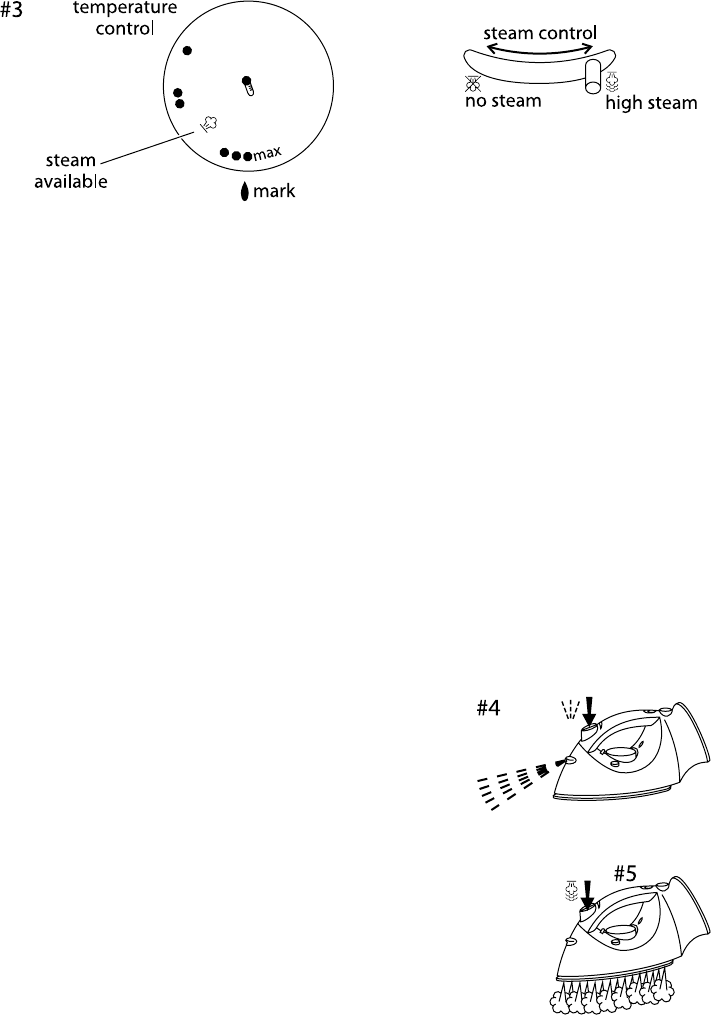
4
temperature setting guide
label marking temperature dot setting
j cool – nylon, acrylics, polyester •
k warm – wool, polyester mixtures • •
l hot – cotton, linen/jeans, denim • • •/max
i do not iron
, If the instructions on the fabric label differ from this guide, follow those on the label.
reducing temperature
20 Reducing the temperature takes a bit longer, as the element has to lose the heat it
has built up, so be patient. It’s best to organise your ironing so that you don’t need
to reduce the temperature (“preparation” page 3, point 2).
steam ironing
21 When steam ironing, you must set the temperature control to S or higher.
22 If you don’t, you’ll get water on your clothes, not steam.
23 Move the steam control to the setting you want, S = no steam, # = high steam (#3).
24 Wait till the thermostat light goes out, then start ironing.
spray
, Water spotting affects some fabrics. Test this out on a hidden part of the fabric.
25 This works with dry or steam ironing, as long as there’s water in the reservoir.
26 Check that there’s water in the reservoir.
27 Lift the iron off the fabric.
28 Aim the spray nozzle at the fabric.
29 Press the * button.
30 You may have to press it 2 or 3 times to pump water
through the system.
shot of steam
31 This works with dry or steam ironing, as long as there’s water in
the reservoir, and the temperature is above S.
32 Check that there’s water in the reservoir.
33 Check that the temperature control is at S or higher.
34 Lift the iron off the fabric.
35 Press the # button.
36 You may have to press it 2 or 3 times to pump water through the system.
37 Leave 4 seconds between shots, to let the temperature build up.










